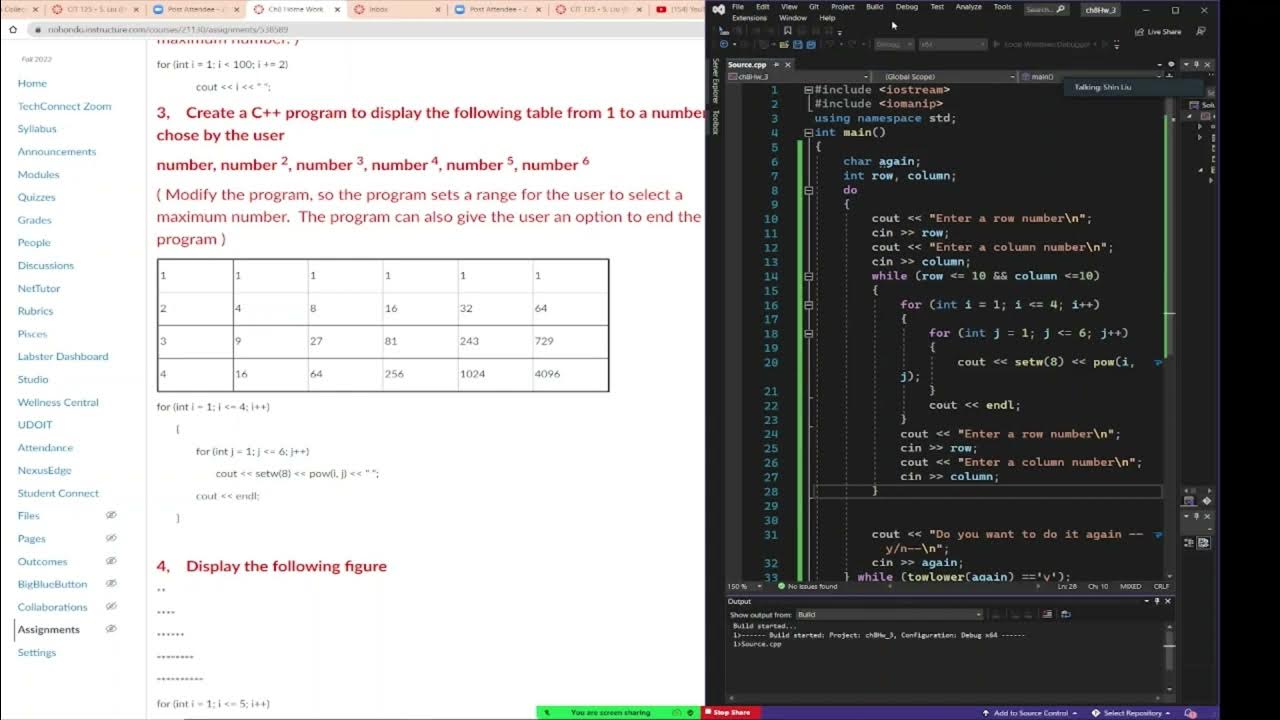Reading an Unknown Number of Inputs in C++
Summary
TLDRIn this lecture, we explore how to handle an unknown number of user inputs in C++. Building on previous lessons about fixed inputs, we discuss using a `while` loop to continuously accept integers until an EOF signal or invalid input is encountered. The program accumulates the sum of all valid entries, demonstrating flexibility in user interaction. Key concepts include stream state testing with `std::cin` and practical examples illustrating the addition process. This foundational knowledge equips learners to create more dynamic and user-responsive applications in C++.
Takeaways
- 😀 The lecture focuses on reading an unknown number of inputs in C++ programming.
- 📊 Previously, fixed numbers of inputs were used; now, the emphasis is on variable inputs from the user.
- 🔄 The program will continuously read numbers until the user indicates there are no more numbers to enter.
- 💡 A while loop is employed to process inputs, checking for valid integers as the condition.
- 🖥️ The cin statement acts as a condition in the while loop, evaluating the state of the input stream.
- 🔢 The sum of entered values is calculated dynamically, demonstrating how to handle an unknown amount of data.
- 🚪 The loop exits either when an invalid input is entered or when an end-of-file signal is encountered.
- ⌨️ On Windows, the end-of-file signal can be triggered by pressing Ctrl + Z, while Ctrl + D is used on Linux.
- 📝 An example code is provided to illustrate the implementation of reading unknown inputs and calculating their sum.
- 🎓 Understanding the use of input streams as conditions is crucial for writing flexible C++ programs.
Q & A
What is the primary focus of this lecture?
-The lecture focuses on how to read an unknown number of inputs from the user in C++ and sum those values.
How did the previous lectures handle user input?
-Previous lectures dealt with fixed numbers of inputs using loops, where the user was asked to enter a specific number of values.
What is a key challenge when reading inputs from the user?
-The key challenge is that the program does not know how many values the user will enter, making it necessary to handle variable input sizes.
What programming structure is used to handle an unknown number of inputs?
-A while loop is used to continuously read inputs from the user until an invalid input or end-of-file (EOF) is encountered.
What condition is used in the while loop for reading inputs?
-The condition for the while loop uses 'std::cin' to check if the input stream is valid, meaning the user has entered a valid integer.
How does the program know when to stop reading inputs?
-The program stops reading inputs when the user either inputs an end-of-file signal or enters a non-integer value, which renders the input stream invalid.
Can you provide an example of valid inputs and the expected output?
-For example, if the user enters 1, 2, 3, 4, and 5, the output will be the sum, which is 15.
What happens if the user inputs a character instead of a number?
-If the user inputs a character, the program will terminate the input loop and display the sum of the valid numbers entered before the invalid input.
What are the key keyboard shortcuts to signal EOF on different operating systems?
-On Windows, the EOF signal is Ctrl + Z, while on Linux, it is Ctrl + D.
What is the significance of initializing the sum and value variables to zero?
-Initializing the sum and value variables to zero ensures that the program starts with a clean state before accumulating user inputs.
Outlines

This section is available to paid users only. Please upgrade to access this part.
Upgrade NowMindmap

This section is available to paid users only. Please upgrade to access this part.
Upgrade NowKeywords

This section is available to paid users only. Please upgrade to access this part.
Upgrade NowHighlights

This section is available to paid users only. Please upgrade to access this part.
Upgrade NowTranscripts

This section is available to paid users only. Please upgrade to access this part.
Upgrade NowBrowse More Related Video

C++ programming, for loop to create a exponential table, do while loop to continue

#4: Get User Input in C Programming

#11 What is Routing | Fundamentals of NODE JS | A Complete NODE JS Course

C++ Tutorial for Beginners 10 - While Loops

C++ 24 | Pola Persegi | Belajar Looping C++

C++ Nested If Statement | Learn Coding
5.0 / 5 (0 votes)